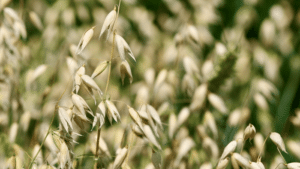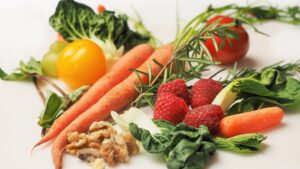Borlaug Scholar Isabella Fiore is pursuing a B.S. in Agronomy at the University of Wisconsin-Madison. She has worked in Dr Lucia Gutierrez’s quantitative genetics lab investigating oat panicles with the goal being able to propose a strategy for evaluating oat panicle architecture and morphology. This summer, Isabella is working in Dr William Tracey’s Sweet Corn Breeding Program assisting in field work maintenance and production of inbred and hybrid lines. During her undergraduate career she interned for Slow Food UW, an organization dedicated to alleviating food insecurity on college campuses. After graduation, Isabella plans to pursue a Ph.D. in plant breeding and genetics and hopes to work internationally to help ensure food security for all people regardless of geography or socioeconomic background.
She tells us her story.
There are two labs I’ve worked with. The first is research in the Quantitative Genetics department. In this lab, we analyze oat panicle architecture to determine seed quality and grain yield. We investigate the genotype by environment interaction with the hopes to produce high-performing oat varieties. Higher functioning oat varieties will feed more people globally and will help address the global world hunger crisis.
I also participate in Flint Corn research through the Sweet Corn Breeding Program at the University of Wisconsin-Madison. Throughout the 2021 summer field season, I have been growing Northern Flint Corn varieties and taking data on different growth stages to help assist in revitalizing the Northern Flint Corn in hopes to strengthen Indigenous agriculture.
Both sweet corn and oats have been amazing to work with. However, my favorite crop has been sweet corn because of the great team I work with, and the hands-on work I have been able to do in the field. The sweet corn breeding program I have been working on this summer has also given me valuable insight into how a breeding program functions. Working in the field for the Sweet Corn Breeding Program has helped me further refine my research interests and future work life needs and wants.
Food security is a passion of mine — I believe food security should be a right not a privilege. No person should have to worry about finding nutritious and delicious food to help them reach their nutrition needs and goals. Global food insecurity cripples’ nations around the world and prevents positive economic and agricultural growth. Food insecurity and poverty work like a positive feedback loop, we must decide to tackle both to increase the prevalence of well-fed individuals and communities around the world.
After I attend graduate school, I hope to move abroad and work with international agriculture. International agriculture is what originally drew me to plant breeding. I hope to take the skill set I cultivate in graduate school to help address the problems that developing nations are facing in agriculture today.
And in the future? I am looking forward to how new and old plant breeding technology and techniques will tackle and address the new challenges climate change is causing in agriculture around the world. Specifically, with changing weather patterns, new disease prevalence, and increased pest management problems.












